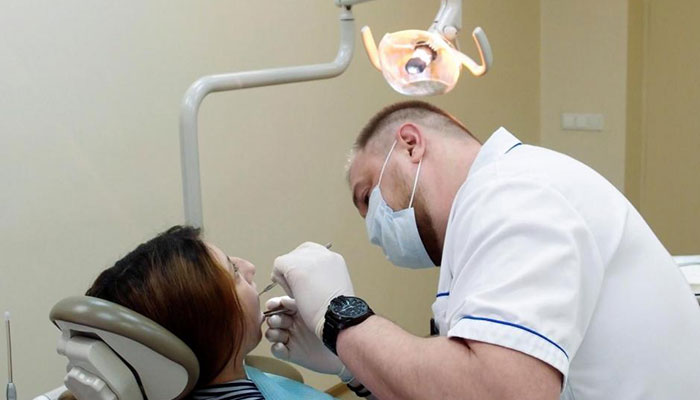Dental care in early dementia might prevent problems later
Forty-one patients, or 80 percent, were registered or seen regularly by a dentist
February 05, 2018

Preventive dental care provided in the early stages of dementia could help limit major tooth problems later, researchers say.
“Dementia is associated with a change in health habits, including two major ones - diet and teeth cleaning,” said Robert Emanuel of Sussex Community NHS Foundation Trust in Sussex in the UK, a specialty care dentist who is often consulted to help patients with late-stage dementia.
Sometimes their teeth are nearly untreatable, he said.
“Especially when patients go to residential care, they tend to have a more sugary diet and have problems cleaning their teeth,” he told Reuters Health by phone. “If not looked after, their teeth can deteriorate quite quickly.”
Emanuel and colleague Anne Sorensen of Brighton and Sussex Medical School surveyed 51 patients about 10 weeks after these individuals had received a dementia diagnosis. They asked whether patients were registered with a dentist and if they received preventive dental care.
Forty-one patients, or 80 percent, were registered or seen regularly by a dentist, and 35 said they had been to the dentist in the past year. About half of the patients attended regular hygienist sessions.
At the same time, however, preventive care appeared to be lacking. Most patients didn’t receive diet advice or oral hygiene instructions. Most also weren’t offered fluoride treatments, particularly fluoride varnishes, which can help prevent cavities and tooth decay.
“With dementia patients, we tend to be treatment-oriented and there’s not as much talk of prevention,” Emanuel said. “Early in the disease, we should build positive habits so patients don’t forget what their dentists advise.”
“It has been said, ‘Oral health is the gateway to quality of care and everyday life at old age,’” said Stefan Renvert of Kristianstad University in Sweden, who researches oral health in dementia patients living in residential facilities.
Renvert, who wasn’t involved in the current study, is working to develop devices that might help people with cognitive decline maintain their oral health.
This year, he and his colleagues will test electronic toothbrushes that can remind patients how to brush their teeth thoroughly and record information that dentists can use, Renvert said in an email.









